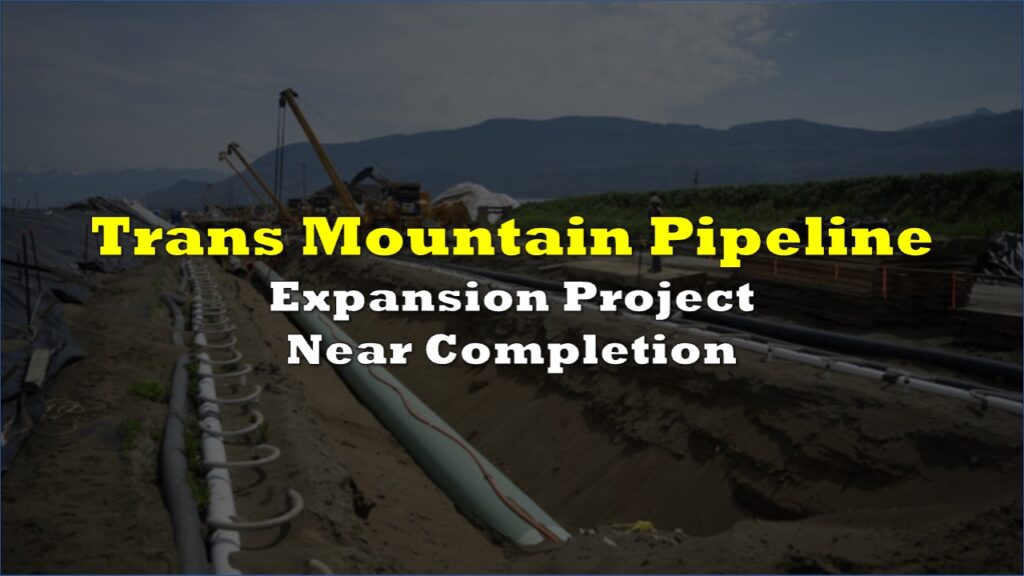The Canadian oil industry is poised for a significant boost with the nearing completion of the Trans Mountain pipeline expansion project. This initiative, which has been over a decade in the making, is set to enhance the existing 1,150-kilometer pipeline that runs between Alberta and British Columbia, introducing a substantial increase in capacity from 300,000 to 890,000 barrels per day.
Originally proposed by Houston-based Kinder Morgan Inc. (NYSE: KMI) in 2012, the project faced numerous challenges, including environmental concerns and political opposition, leading to its acquisition by the Government of Canada in 2017 for $4.5 billion. Since then, the project’s cost has escalated to approximately $30.9 billion due to various factors such as inflation, natural disasters, and additional requirements for environmental and cultural protection.
The expansion aims to improve the pricing and market access for Canadian crude oil, which is primarily heavy and commands lower prices due to higher refining costs and transportation expenses. Currently, transporting oil from Alberta to the US Gulf Coast is notably cheaper via pipeline than rail, and the expanded pipeline is expected to further reduce these costs, potentially lowering the price differential between Canadian and US oil.
Canada’s Trans Mountain pipeline expansion is set to startup. The pipeline will deliver 590,000 bpd of oil sands crude to the Pacific Coast. The new outlet has driven WCS prices higher, shrinking the spread to $WTI. #OOTT #OIL #ENERGY
— OTR (@OTR444) February 26, 2024
Moreover, the project is anticipated to open new export markets for Canadian oil, especially to the US West Coast and Asia, by enhancing export facilities and providing more competitive transportation options. This diversification of export destinations is crucial for Canada, which has traditionally been reliant on the US as its primary oil market.
Several Canadian oil producers have already secured a significant portion of the pipeline’s capacity, indicating a strong industry belief in the project’s potential benefits. Companies like Cenovus Energy Inc. (NYSE: CVE), Imperial Oil Ltd. (TSE: IMO), and Canadian Natural Resources Ltd. (TSE: CNQ) are expected to leverage the new pipeline to access global markets more efficiently, which could lead to improved profitability and industry growth.
Despite concerns over the project’s impact on other pipeline operators, such as Enbridge Inc. (TSE: ENB), industry experts argue that the overall increase in oil production and the continued need for diverse transportation options mean there is enough demand to support multiple pipelines. This sentiment is underscored by expectations that the new pipeline will reach its capacity quickly due to the industry’s readiness to ramp up production in anticipation of better prices and access to new markets.
Information for this story was found via Financial Post, and the sources and companies mentioned. The author has no securities or affiliations related to the organizations discussed. Not a recommendation to buy or sell. Always do additional research and consult a professional before purchasing a security. The author holds no licenses.










One Response
Wow! Exciting stuff… Can’t wait til the public purse gets rich on tolls! Not to mention the TWO HUNDRED jobs it’s going to create.
They’re going to be real careful loading it on the boats, right?